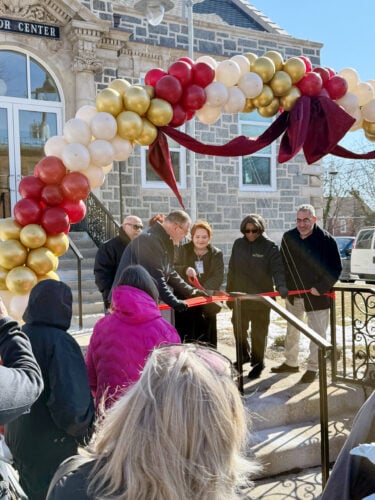Governor Phil Murphy Grants Clemency to 36 Individuals, Including Abuse Survivors in New Jersey

Governor Phil Murphy of New Jersey made history when he granted clemency to 36 individuals.
He used his clemency powers for the first time in his two terms as governor.
This included pardoning 33 people and reducing the prison sentences of three women.
That’s the kind of decision that gives people hope and a second chance to start fresh.
Myrna Diaz, Dawn Jackson, and Denise Staples were the three women who had their sentences reduced.
The common denominator: All three had suffered years of abuse before committing crimes against those who hurt them.
Myrna Diaz, who is now 60 years old, served 14 years of a 40-year sentence for murder, robbery, and related charges.
Dawn Jackson, 53, spent 25 years in prison after being sentenced to 30 years for killing her step-grandfather, who had sexually abused her for years.
Denise Staples, 63, was serving a 60-year sentence for murder and possession of a weapon, but she was released after 20 years.
Behind some crimes, there’s a much bigger picture, as we can see from the people’s stories we just touched on.
When there’s abuse and trauma involved, it’s extremely important to examine the full story, and that’s what Governor Murphy understands to the fullest extent.
The clemency decisions happened after Governor Murphy created the Clemency Advisory Board in June 2024.
This board, the first of its kind in New Jersey, was made to carefully review clemency requests and recommend who deserved a second chance.
The board focused on cases where people had been convicted of nonviolent crimes or where abuse and violence were part of the story.
Amazingly, the new system made sure the process was fair and focused on real justice.
The Clemency Advisory Board, led by Justin Dews, went beyond reviewing records.
They ensured victims and their families were heard and given the chance to share their views.
This careful process led to selecting people who had worked hard to improve their lives.
Among those pardoned were veterans, faith leaders, small business owners, and community volunteers.
Most of them had stayed out of trouble for over 10 years and had shown they were ready for a fresh start.
Governor Murphy’s actions also brought attention to unfair sentences from the past.
Many people pardoned had been convicted of drug-related crimes under old, harsh laws.
By clearing their criminal records, the governor made it easier for them to find jobs, housing, and other opportunities.
For these individuals, it was a real chance to rebuild their lives, one they probably thought they would never get.
It clearly communicated that fairness, not politics, would guide clemency decisions.
Justin Dews, who led the advisory board, said this was the first time in New Jersey’s history that clemency decisions were genuinely fair.
The American Civil Liberties Union (ACLU) of New Jersey also supported the effort.
Amol Sinha, the group’s leader, said this was a step toward fixing years of mass incarceration and making the justice system more fair.
Other states had taken similar steps.
In Oregon, former Governor Kate Brown pardoned over 40,000 people for minor marijuana offenses after legalization.
New Jersey had already passed laws to clear marijuana-related convictions, but NJ Governor Murphy’s clemency went further.
It addressed a wider range of unfair sentences and showed that real change is possible when leaders focus on fairness.
Governor Murphy had taken brave steps before, which clearly proves he was willing to tackle hard issues.
During the COVID-19 pandemic, his administration released thousands of prisoners to help stop the spread of the virus, which led to a major drop in the state’s prison population.
The clemency initiative built on those efforts, reinforcing his commitment to making the justice system fairer and more compassionate for everyone.
The effects of this clemency extend way further than the 36 people who were directly involved.
It sent a powerful message that people can grow and change and deserve another chance to rebuild their lives.
Dawn Jackson, Myrna Diaz, and Denise Staples’s release was a chance to move forward from their past.
For the 33 others who were pardoned, it meant they could finally work toward a better future without a criminal record holding them back.
Commendably, Governor Murphy made it clear this was just the beginning.
With one year left in his term, he promised to keep using his clemency powers to help more people who had earned a second chance.
His actions showed that justice is fairness, kindness, and giving people hope for a better future.









